Students Visit German Extermination Camps in Poland
Group with Emory University’s Meor program tour several Holocaust sites.
Chana Shapiro is an educator, writer, editor and illustrator whose work has appeared in journals, newspapers and magazines. She is a regular contributor to the AJT.
“To say that this was anything other than life-changing would be a grave understatement. The connections I was able to make with both the students and the staff in only a week are ones that I will carry with me for the rest of my life. We saw the most unthinkable horrors of humanity, followed by the undying Jewish spirit. Truly inspiring,” writes Amelia Navins, a student who recently returned from an organized trip to Poland with the Emory University group, Meor, Hebrew for “enlightenment.”
It’s heartening but difficult to understand why any young Jew, like Navins, would voluntarily want to spend a full week in Poland; however, one of Emory’s Jewish chaplains and director of the Jewish leadership training program, Meor, Rabbi Yaakov Fleshel, and a group of students chose Poland as the place to spend a good portion of their winter break. Rabbi Fleshel has led groups of students to Poland eight times with Meor, which plans and staffs groups on campuses throughout the United States and Europe, and four buses of American students were on this year’s trip. The bus with Emory students also carried students from the University of Pennsylvania and Boston University.
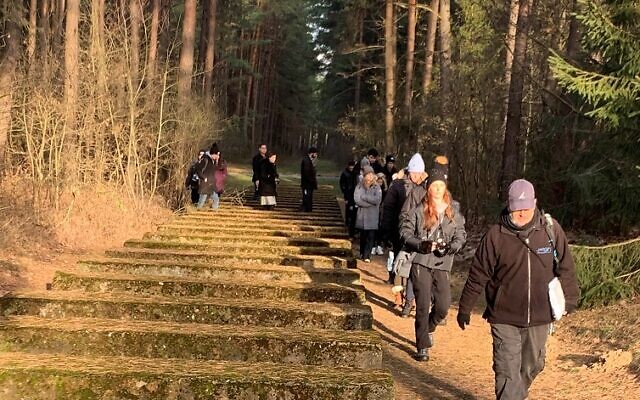
Fleshel states, “Majdanek is the saddest place, with seven gas chambers and two wooden gallows. I believe that the strongest way to teach students about antisemitism and the Holocaust is to take them to a camp.” A poignant tragedy is that Poland once was home to a large, vibrant Jewish population; until the Nazis took control, it was the country with the largest Jewish population in the world.
Majdanek is the saddest place, with seven gas chambers and two wooden gallows. I believe that the strongest way to teach students about antisemitism and the Holocaust is to take them to a camp.
During the Holocaust, several small Polish towns where Jews lived were completely destroyed. The late scholar, Yaffa Eliach, wrote about the town in which she was born, Eisheshuk, in which most of the townspeople were Jewish. It no longer exists; today, it doesn’t even appear on Polish maps.
Rabbi Fleshel, a former history major who brings a storehouse of knowledge to the trip, notes that antisemitism was common among the Polish populace, but it was manifested in full force during the Second World War under Nazi occupation, when Jews were slaughtered openly or transported directly to the crematoria, with full compliance of the citizenry.
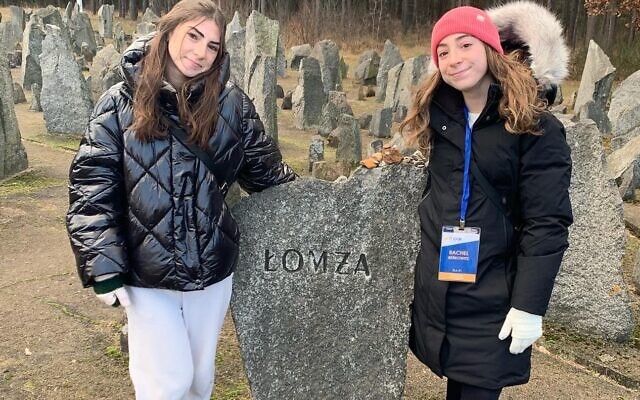
“Part of the power of this trip,” Fleshel explains, “is the fact that our students spent all their time in Poland. On this trip, the Jewish history and reality of Poland, where all the camps had the purpose of extermination, was the focus. In that way, our trips are educational.”
Along with the historical/educational aspect of the trip, students emotionally felt the reality and consequences of unchecked antisemitism, and they continued to process their experiences during the trip. One unforgettable moment on the trip took place when the group stopped at the house and well of Rabbi Fleshel’s late grandmother, a Holocaust victim. Each day of the trip was carefully planned, beginning with a provocative experience at one of the major German extermination camps in Poland, and ending with an uplifting, Jewish life-affirming experience.
Emory student Rachel Berkowitz reports, “Being in Poland with Meor was one of the most emotional experiences of my life, especially because I got to experience it with my sister. Throughout the week, we experienced the lowest of lows as we stood amidst the places where millions of our Jewish family were murdered. We also experienced the highest of the highs as we sang and rejoiced in places the Nazis never expected to exist again: synagogues and thriving Jewish communities. This trip added fuel to an already burning fire inside of me to keep the Jewish community blooming for generations to come.”
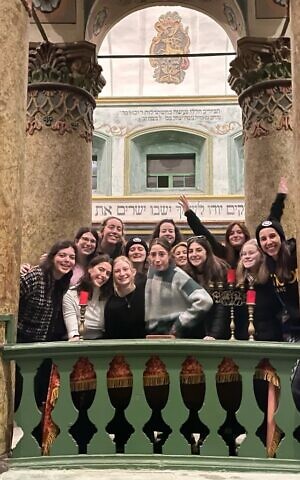
Emory student Aaron Thaler asserted, “Traveling to Poland with Meor profoundly affected my life. While I was fortunate to grow up in a community with many survivors of the Shoah, I had always wanted to delve more deeply into this dark chapter in our people’s history. With Meor, we bore witness to the darkest depths of humanity, but we also experienced the most uplifting world of Torah and inspiration from our rabbis and educators. Our Judaism is not defined by the horrors and destruction we experienced, but rather by the light we share with the world and the joy we experience from being part of our communities.”
Meor works in partnership with the Atlanta Scholars Kollel, and the trip is also heavily subsidized by a number of Jewish philanthropists and past participants, many whose lives have been impacted by a Meor Poland trip. The group always traveled with full security. Fortunately, no one has ever been physically harmed on these trips, yet all the students experienced antisemitic chants and threats as they traveled through Poland.
Launched in 2005, Meor’s unique brand of Jewish leadership training, sophisticated text-based study, and experiential education programming highlight the importance of Jewish values, identity, and participation in community. In more than 15 years, Meor has impacted more than 18,000 undergraduate students, encouraging them to connect with Judaism on their own terms and in their own time.
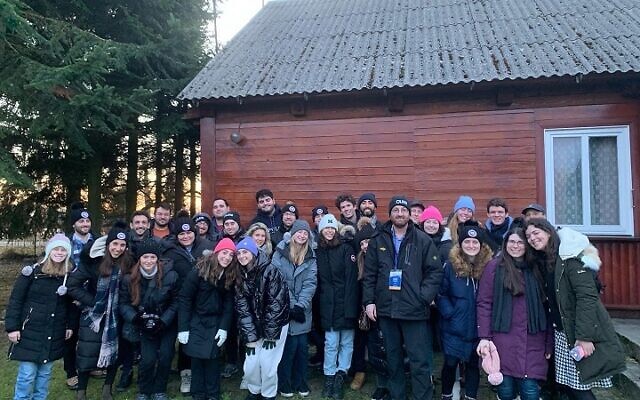
In 2016, Meor established post-university programming to ensure that its alumni would have a sustained Jewish framework for continued growth as young Jewish professionals. Now, in its second decade, Meor continues to relate to young Jewish leaders who seek community and continuity.
Emory student Matthew Chupak offered a personal summation of the trip. “Going to Poland and visiting different sites from the Holocaust was a very meaningful experience. My grandmother was a Holocaust survivor, and while she never went back to Poland, I know she would be proud of me for understanding the importance and having the courage to learn from my visits to the death camps and sites of mass murder. It was particularly emotional for me to visit a forest in Lomazy, where many Jews were murdered, because my great-uncle was murdered in a forest in Poland. Likewise, going to Birkenau was emotionally challenging because that’s where my great-grandfather was murdered. However, it was powerful to now go there as a Jewish person being able to carry the Israeli flag on the campgrounds. To me, this speaks to the resiliency of the Jewish people.”
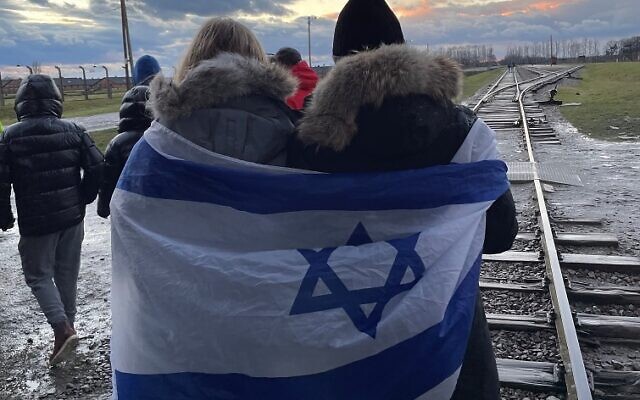
Meor, which began as a Jewish mentorship experiment on a single university campus in the northeast has quickly grown into a flashpoint for Jewish engagement, now operating on 20 prominent college campuses across the country and beyond.
The objective of the Poland trip is summed up by Navins, “I am heading into the new year with a strong desire to embrace my Judaism and explore it and value it every day. I’m setting another goal for myself, too: to be more real. The realness and authenticity that was shared on the trip allowed me to access emotions deep within me, enabling me to reach a deeper connection with others.”



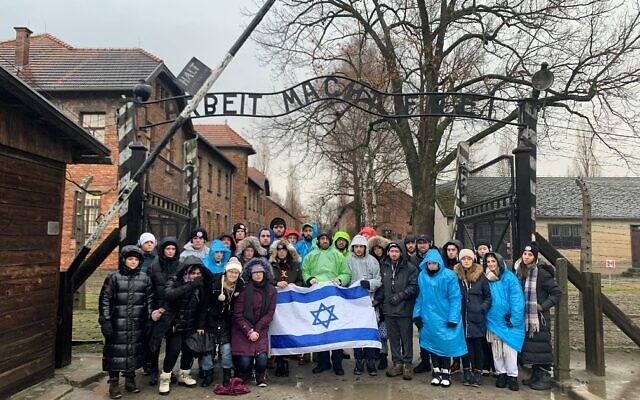
comments